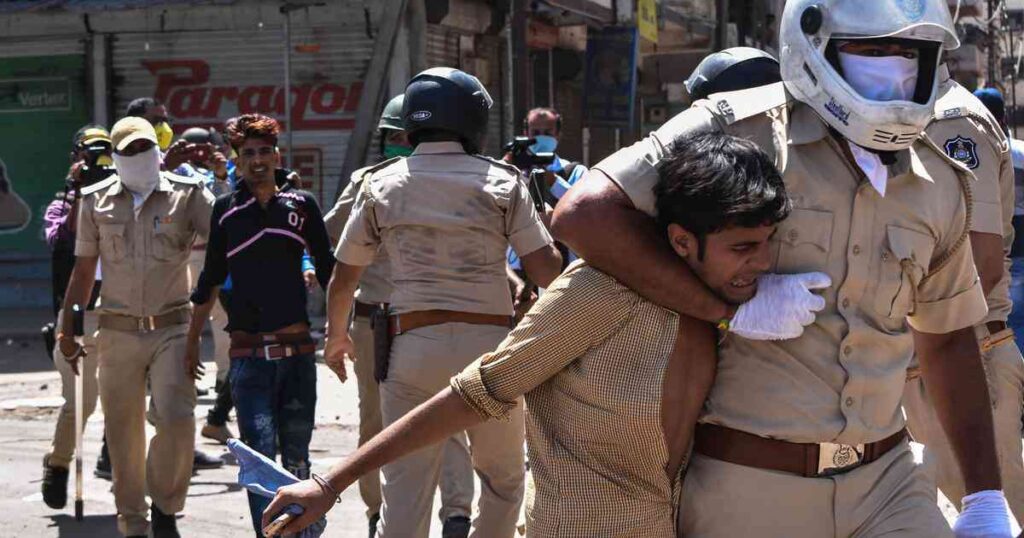Criminal Law Bills
In a historic move, the Lok Sabha approved three pivotal bills (Criminal Law Bills) last Wednesday, spearheaded by Home Minister Amit Shah, aimed at repealing and replacing archaic colonial-era criminal laws.
The reform marks a significant shift, eliminating sedition as a crime, imposing the death penalty for mob lynching, and incorporating terrorism offenses into general criminal law for the first time.
Amit Shah asserts that these legislative changes, intended for the next century, will purge colonial influences from India’s legal framework.
The impact on offenders is profound, with terrorism reclassified and sedition abolished. Notably, mob lynching now carries the weight of the death sentence.
Terrorism will be placed under a different heading; sedition will be abolished (dropped); and mob lynching will now carry the death sentence.
With New legislation let’s understand what it means to the offenders? and let’s have a peak on what and how it improves the current situation.
FIRST – BETTER USE OF FORENSIC TECHNOLOGY
One key facet of the reform focuses on the mandatory use of forensics in offenses with a punishment of seven years or more.
This requirement applies uniformly across all states and Union Territories, emphasizing the importance of forensic evidence. The government aims to establish necessary infrastructure in all regions within five years.
- Forensics will be compulsory in offenses with a punishment of 7 years or more
- The use of forensics will be important in all states / Union Territories
- Necessary infrastructure will be ready in all States / Union Territories within 5 years
SECOND – ON SEXUAL HARASSMENTS / VIOLENCE
In a move to enhance justice for victims of sexual violence, only judicial magistrates will record statements in such cases.
The victim’s statement will be recorded at their residence in the presence of a female police official. Additionally, the victim’s father, mother, or guardian can be present during the statement recording. However, concerns have been raised about the apparent lack of provisions for male victims and the legal framework for women involved in such crimes
- Only judicial magistrate will record statements in cases of sexual violence
- The Victim’s statement will be recorded at their house in the presence of a female police official
- At the time of recording statement, the victim’s father / mother or guardian can remain present
MEN ARE SIDELINED
By these laws repeal it looks that Modi Government is sensitive towards sexual harassment cases and is welcoming. However, the law does not protect men. The Home Minister did not mention how the men are protected if the victim is MEN and is sexually harassed.
Also, it is not clear that what is the legal framework for women involved in these kinds of crimes?
Many netizens took to X (earlier Twitter) and expressed their anguish that we in general tend to view women as innocent, but what about the particular women who present as respectful but cover up their illicit activity?
THIRD – LEGAL PROVISION OF THE COUNTRY TO BECOME SIMPLE
The reform seeks to streamline legal proceedings by fast-tracking summary trials in petty crimes.
These trials will become mandatory in cases related to theft and criminal intimidation. Magistrates are empowered to conduct summary trials in crimes punishable up to a certain threshold.
- Summary trials in petty crimes to be fast-tracked
- Summary trials to become mandatory in matters related to theft and criminal intimidation
- Magistrate can conduct summary trial in crimes punishable up to
years
While lauded for its sensitivity towards sexual harassment cases, the reform has faced scrutiny for its potential oversight regarding male victims and the legal standing of women involved in criminal activities.
The shift towards a simplified legal provision is anticipated to expedite justice delivery in the country.
What 3 New Criminal Law Bills Mean To Offenders?
The approval of three groundbreaking criminal law bills in India, led by Home Minister Amit Shah, signifies a significant shift in the country’s legal landscape. Here’s a breakdown of what these reforms mean for offenders:
- Abolition of Sedition:
- Implication: Offenders will no longer face charges of sedition, marking the end of a colonial-era law that was criticized for its potential misuse against dissent.
- Significance: This move reflects a commitment to free speech and expression, providing individuals with greater freedom to voice their opinions without the threat of sedition charges.
- Death Penalty for Mob Lynching:
- Implication: Mob lynching, a heinous crime that has been a growing concern, now carries the ultimate penalty—the death sentence.
- Significance: The severe punishment aims to act as a deterrent, sending a strong message against vigilantism and mob violence. It underscores the government’s commitment to ensuring public safety and deterring such brutal acts.
- Inclusion of Terrorism Offenses in General Crime Law:
- Implication: Terrorism offenses are now integrated into general criminal law, streamlining legal processes and potentially expediting justice.
- Significance: This signifies a shift away from a separate legal framework for terrorism, aligning it more closely with other criminal offenses. It may enhance the efficiency of legal proceedings and facilitate a comprehensive approach to tackling terrorism.
Overall Impact on Offenders:
- Clarity and Modernization: The reforms aim to eliminate outdated and colonial influences, providing a more modern and clear legal framework for both citizens and law enforcement.
- Stringent Measures: The introduction of the death penalty for mob lynching emphasizes the government’s commitment to tackling violent crimes firmly.
- Enhanced Protections: The abolition of sedition laws and the incorporation of terrorism offenses into general criminal law signal a move towards a more balanced and contemporary legal system.
These changes not only redefine the consequences for specific offenses but also reflect a broader commitment to justice, deterrence, and the protection of individual rights within the evolving societal landscape.









